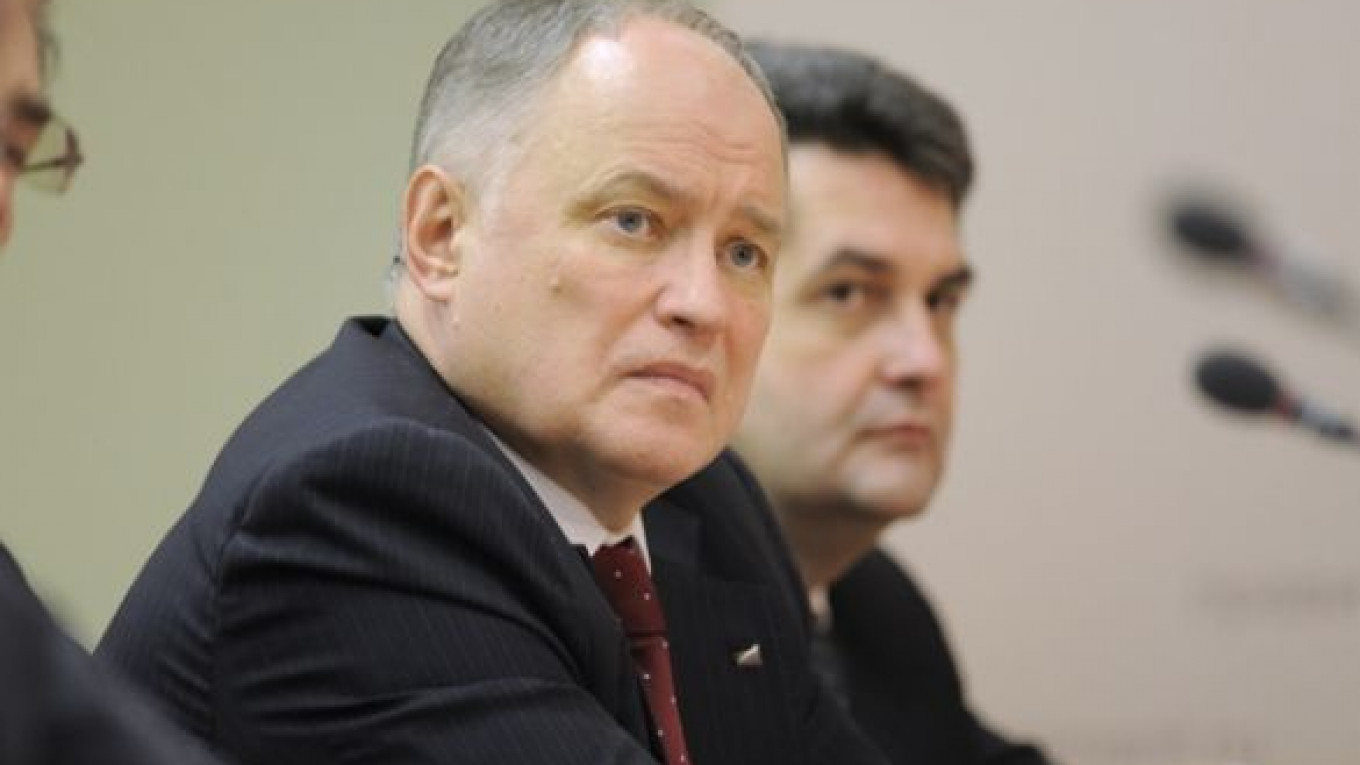The head of Opora vowed Wednesday to continue the small-business association's cooperation with a U.S.-Russian business group that he said was maligned by "yellow" press in the wake of the new law on nongovernmental groups.
Opora president Sergei Borisov, who is also a vice president at state-lender Sberbank responsible for small business development, passionately defended the U.S.-Russia Foundation against allegations that it is a covert political organization. The foundation advises entrepreneurs in Russia.
Calling the reports about the group outright lies, he said Opora "won't break off" its cooperation with the foundation regardless of the on nongovernmental organizations, which brands those with non-Russian funding as "foreign agents."
"USRF brings a huge amount of American business experience," Borisov said.
He also said the recent shouldn't be used to stop exchanges of business experience.
"If the transfer of knowledge is treason, then I don't know what treason is," he said.
But most of the news conference convened by Opora to discuss its survey results for 2012 was devoted to financial and administrative barriers facing entrepreneurs.
Describing the frustrations of the country's small- and medium-size-business owners, executives at the round table lamented what they called a shortage of qualified employees and access to credit, as well as burdensome taxes.
Alexei Prazdnichnykh, who heads the public sector practice at Sberbank consulting business Strategy Partners, said Russian businesspeople have much less access to financial resources than their peers in other countries.
A similar sentiment appeared in the survey of 6,000 entrepreneurs in 40 regions that Opora conducted this year. One of the biggest problems they cited was limited access to funding.
"As in the previous [survey] year, the longer the desired period of the loan, the lower the chance they will get it," Opora said in a Wednesday press release following the conference. Nearly half the respondents said the main obstacle to getting financing is prohibitively high rates.
The No. 1 problem cited by survey participants was a lack of qualified employees. That is tied to the education and training of future workers, Borisov said.
In the report, the percentage of small- and medium-size-business owners giving a negative rating to their job candidate pool rose 12 percentage points this year, to 68 percent. About 20 percent of respondents, however, said they can easily find qualified workers.
Another major hang-up for businesspeople is the taxes that must be paid on employee salaries as contributions to the government's pension fund and other social guarantees.
The country has a "a not totally well-thought-out system" in this regard, Borisov said. Instead of assessing high taxes, the government should increase its tax revenues by lowering the rates, stimulating the development of small business and thereby widening its tax base.
He named the three areas panned in the survey as the parts of federal policy with the biggest inadequacies.
Related articles:
A Message from The Moscow Times:
Dear readers,
We are facing unprecedented challenges. Russia's Prosecutor General's Office has designated The Moscow Times as an "undesirable" organization, criminalizing our work and putting our staff at risk of prosecution. This follows our earlier unjust labeling as a "foreign agent."
These actions are direct attempts to silence independent journalism in Russia. The authorities claim our work "discredits the decisions of the Russian leadership." We see things differently: we strive to provide accurate, unbiased reporting on Russia.
We, the journalists of The Moscow Times, refuse to be silenced. But to continue our work, we need your help.
Your support, no matter how small, makes a world of difference. If you can, please support us monthly starting from just $2. It's quick to set up, and every contribution makes a significant impact.
By supporting The Moscow Times, you're defending open, independent journalism in the face of repression. Thank you for standing with us.
Remind me later.






